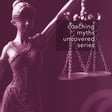
Can Someone Be a Good Coach without Coach Training?
In this thought-provoking episode of PRIME SPACE, hosts Elias and Amy—both master-certified coaches from the PRIME Coaching Academy—tackle a critical and sometimes controversial question in the coaching profession: Can someone truly be an effective coach without formal coach training?
Drawing from years of experience and deep knowledge of the industry, Elias and Amy explore the nuanced realities of coaching with and without formal preparation. While they recognize that some individuals may have natural coaching instincts, they strongly advocate for the transformative impact of structured coach training. They delve into the tools, ethical frameworks, and professional standards that formal training provides—and why these elements are essential for creating meaningful, sustainable transformation for clients.
Whether you're a coach, aspiring coach, or simply curious about what separates a good coach from a great one, this episode offers valuable insights into:
- The risks of coaching without training
- Why natural talent alone isn't enough
- How ongoing learning shapes coaching excellence
- The ethical responsibilities of professional coaches
- The importance of distinguishing coaching from mentoring or consulting
📌 Notable Quote:
"When people coach without formal training, they don't know what they don’t know." – Amy
📌 Kicker Quote:
"Why are you not investing in yourself? Why aren't you considering yourself a professional and doing what professionals do?"
🔍 Themes Explored:
✔️ Coaching vs. Mentoring/Consulting
✔️ The hidden gaps in untrained coaching
✔️ Ethical standards and ICF best practices
✔️ Lifelong learning in coaching
🎧 Tune in and reflect on your own coaching journey—and what it means to show up as a true professional in this evolving field.
#PRIMESpacePodcast #CoachTraining #ProfessionalCoaching #ICFStandards #EthicalCoaching #CoachingExcellence #OngoingDevelopment #CoachingProfession #MentorVsCoach #TransformationalCoaching



















